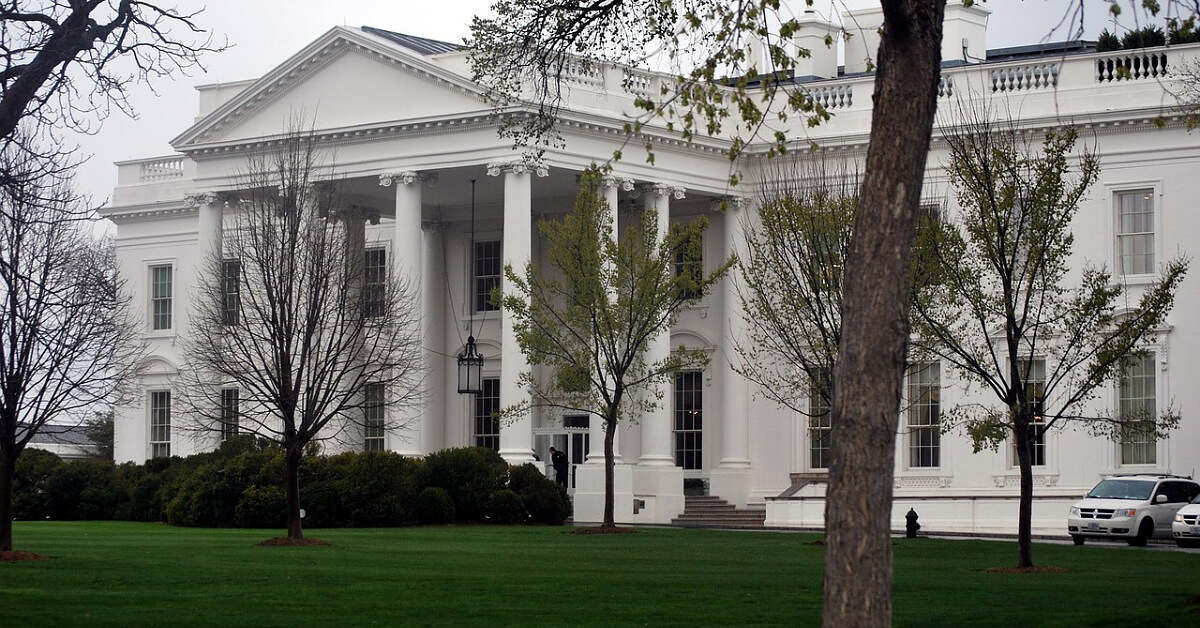Blog
J.D. Vance as VP: Impact on U.S. Immigration Policy
Last Updated:
November 12, 2024
Last Updated:
September 16, 2025
Blog
Last Updated:
November 12, 2024
Last Updated:
September 16, 2025

The potential ascension of J.D. Vance to the vice presidency could mark a significant shift in U.S. immigration policy. Vance, known for his stringent views on immigration, has made the issue a cornerstone of his political platform. His stance echoes that of former President Donald Trump, with whom he has closely aligned himself. This article explores the possible implications of Vance's vice presidency on immigration policy and its broader effects on the United States.
Vance's 2022 Senate campaign in Ohio prominently featured his hardline views on immigration. His first advertisement starkly stated, “Joe Biden’s open border is killing Ohioans,” accusing the current administration of allowing illegal drugs and Democrat voters to flood into the country. This message reflects Vance's belief that strict immigration controls are necessary to protect American citizens and the nation's integrity.
The junior senator from Ohio was chosen by Trump at the Republican National Convention (RNC ) in Wisconsin. In an appearance on July 17, Vance focused parts of his speech on immigration, a topic the GOP sees as a key plank of its general election strategy. He blamed housing issues on undocumented immigrants and Democrats while also advocating for legal migration.
One of Vance's primary objectives is to complete the construction of the border wall, a controversial project initiated by Trump that Vance has pledged to "oppose every attempt to grant amnesty" to immigrants who entered the United Stated illegally. This stance suggests a future where pathways to citizenship for undocumented immigrants could become even more restricted, potentially leaving millions in legal limbo.
Vance argues that undocumented immigrants are a source of cheap labor that suppresses wages for American-born workers. He contends that eliminating this labor pool would compel businesses to hire from the seven million prime-age American men currently out of the labor force. However, this perspective overlooks the complexities of the labor market and the various reasons behind workforce disengagement.
Like Trump, Vance has called for the mass deportation of undocumented immigrants. “We have to deport people, we have to deport people who broke our laws who came in here, and I think we start with the violent criminals,” Vance told Fox News.
A campaign fundraising message sent out earlier in July 2024 from Vance's campaign included a line backing the move: "We need to deport every single person who invaded our country illegally."
Despite the logistical and humanitarian challenges such a program would entail, Vance has not shied away from backing this extreme measure. Implementing mass deportations could strain resources, disrupt communities, and face significant legal challenges.
As part of his speech at the RNC in Milwaukee, Vance said that migrant workers had undercut American wages and forced U.S. citizens out of work. To chants of "send them back" from supporters, Vance claimed a second Trump term would increase wages and bring back jobs he asserted had been lost to Mexico and other countries.
Vance traced this economic downturn to events post-9/11 and the invasion of Iraq, during George W. Bush's first term in the White House.
He also spoke about U.S. homebuilders going out of business during the 2008 financial crisis, leading to a prolonged housing shortage. "Then the Democrats flooded this country with millions of illegal aliens," Vance said. "So citizens had to compete with people who shouldn't even be here for precious housing."
These remarks highlight Vance's perspective on the intersection of immigration policy and economic challenges, reflecting broader debates on these issues.
According to the Migration Policy Institute's data, around 28%, or three million, undocumented immigrants own a home, compared to roughly 65% of the 333 million American citizens. Vance's comments on the housing market play into a broader narrative that undocumented immigrants exacerbate domestic challenges, though the data presents a more nuanced picture.
Vance advocates for a merit-based immigration system, which would prioritize immigrants based on their skills and qualifications rather than family connections or humanitarian need. While proponents argue that this system would attract highly skilled workers and boost the economy, critics warn that it could disadvantage those fleeing persecution and seeking refuge.
"It is part of that tradition that we welcome newcomers," Vance told the RNC, to little applause. "But when we allow newcomers into our American family, we allow them on our terms." He went on to speak about his wife, Usha, an attorney and the daughter of Indian immigrants. He praised her and her family as examples of immigrants enriching the country, despite his hardline stance raising eyebrows even within the MAGA movement.
Usha Vance's heritage prompted some extremist figures within the MAGA movement to cast doubt on his hardline immigration stance, arguing he couldn't have such views because of his wife's ethnicity. "Together we will put the citizens of America first, whatever the color of their skin," Vance assured the assembled delegates.
The possible appointment of J.D. Vance as vice president carries profound implications for U.S. immigration policy. His alignment with Trump's hardline approach suggests a future marked by increased border security, deportations, and generally making things harder for undocumented immigrants to access legal pathways. As the political landscape evolves, it will be crucial to monitor how these policies unfold and their impact on the fabric of American society. While Vance's views resonate with a segment of the electorate, the broader implications for immigrants and the nation's economic and social stability warrant careful consideration.
Never miss an update. Follow along for more.
[button link="https://app.lawmatics.com/forms/share/32f35b76-b237-4c4f-8a9d-75317e0ed6f2" newwindow="yes"] get the latest[/button]